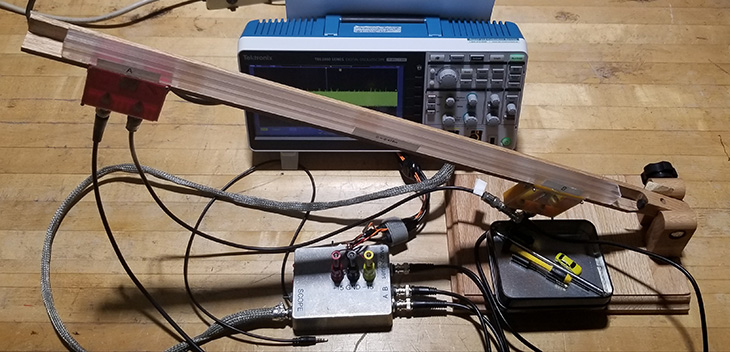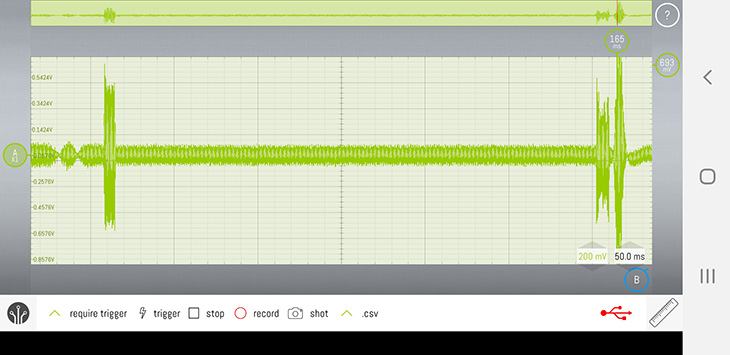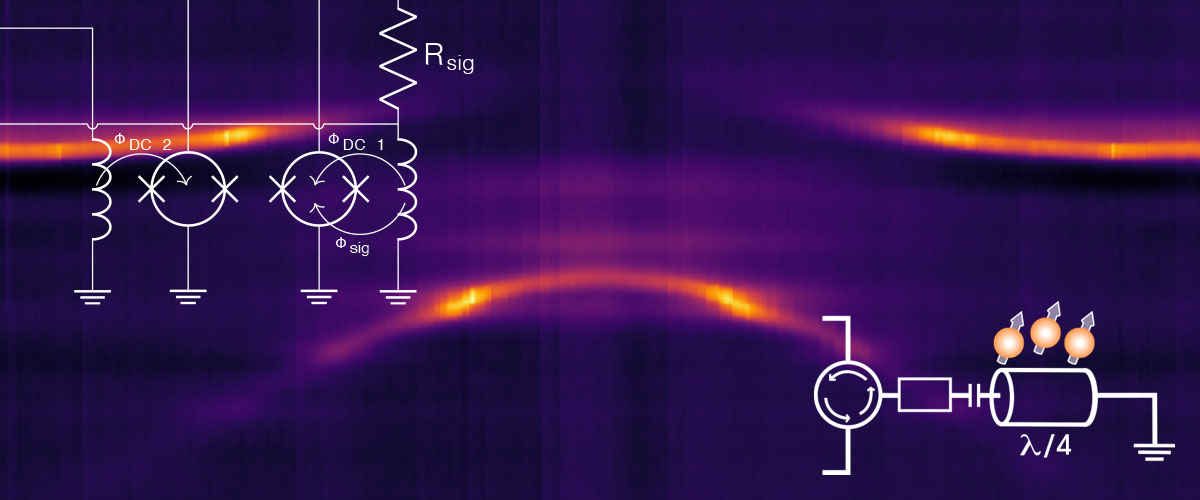Our research activities are paired with outreach efforts such as public demonstrations (science events, visits to numerous local schools, etc) and often involve undergraduate students from FSU or accepted in our REU (Research Experience for Undergraduates) program. These students are always willing to enlarge their horizons and acquire hands-on experience. In some summers we also train teachers accepted in the local RET program (Research Experience for Teachers). Among past projects, a particularly successful one (done with supplemental funds from FSU) was the installation of a set of solar panels to power up the amplification stage of our microwave detection scheme.
Other educational projects realized with RET participants include:
- a cylindrical cavity operating at phone carrier frequency, to explore nodes and anti-nodes and their dependency on the cylinder length.
- a half-pound levitating hover board containing 4 magnets fixed in a rotating disc atop of a copper plate. The demo shows the dynamical aspects of Eddy currents and Lenz law.
The video shows a plastic disc with 4 magnets embedded in it, in rotation atop of a copper plate. The magnets polarity is alternating from one to the next such that the Eddy current image of one magnet in copper will repel the magnet that follows, and so on.
The team actively participate in outreach events held at National MagLab or in campus in the Physics Department: the MagLab Open House, the departmental Flying Circus of Physics and the Saturday Morning Physics program. These events are a chance to introduce the general public not only to basic Physics demonstrations, but to some aspects of our research as well. In particular, the MagLab Open House annual event attracts as much as 10k visitors in one day and therefore it is an unparalleled opportunity to introduce the public into the world of electro-magnetism. Aside the levitating demo mentioned above, we have developed in our group a linear accelerator based on permanent magnets as well as a magnetometer with two sensors to time car racing down an incline, see photos below.

An incline with two magnetometers placed at its ends. The excitation and signal analysis is done by a compact hardware box visible under the incline. Signal visualization can be done with an oscilloscope or a tablet running an oscilloscope app.

Visualization of recorded signals coming from the two sensors as a car is sliding on top of the incline. The one on the left is smaller as the car just start to slide, while the one on the right is larger due to car’s speed.
When the COVID pandemic hit, we considered an opportunity to open our science demonstrations to a broader audience using the MagLab youtube channel (see link below). Also, a major effort consisted in automatizing a dozen or so of the Intermediate and Advanced undergraduate lab course at FSU, such that motors, lasers, LED, webcams, etc could be operated remotely using python and LabView.
In our group we understand that an important aspect of our large, public university is the opportunity we have as teachers to interact with students from all social strata and make a difference on their future careers, thus impacting the future of the state and of the nation. The act of teaching is intrinsically connected to research: if we teach our students well, we will have top scientists in the future.



